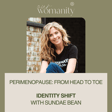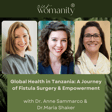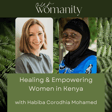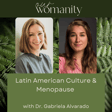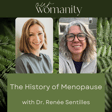
3. Reusable Pads, Community Wisdom & Period Justice with Maisha Sullivan Ongoza
In this powerful episode of Our Womanity, we sit down with Maisha Sullivan Ongoza, the visionary behind P.A.S.H.I. — the Pan-African Sisterhood Health Initiative. Maisha shares how this community-rooted organisation is tackling period poverty, reducing stigma around menstruation, and centering ancestral wisdom through eco-friendly, reusable menstrual products. From intergenerational teachings led by elders to engaging boys and men in the conversation, Maisha walks us through how P.A.S.H.I. is changing lives across the globe.
What We Cover:
- The origin and mission behind P.A.S.H.I
- Why menstrual hygiene management (MHM) is a public health and dignity issue
- The power of reusable pads and eco-conscious period solutions
- The importance of involving elders as hands-on teachers
- How P.A.S.H.I. is shifting cultural norms by including men and boys
- Stories of impact from Philadelphia to Africa and the Caribbean
- How you can support or replicate this model in your own community
About P.A.S.H.I:
P.A.S.H.I. empowers girls, women, and others by providing free, eco-friendly, reusable menstrual pads and education on life skills, reproductive health, and MHM. With over 47 global shipments and annual youth workshops in Philadelphia, P.A.S.H.I is restoring dignity and access one pad at a time.
Impact Snapshot:
- 47+ pad shipments to Africa & the Caribbean since 2019
Thousands of free menstrual and hygiene kits distributed - Annual youth workshops teaching reusable pad creation
- Hands-on guidance from elders in the community
Key Quote from Maisha:
"We’re not just handing out products—we’re rebuilding a sense of worth, reclaiming ancestral knowledge, and reminding our young people they are worthy of care, dignity, and tradition."
Resources & Links:
Website: www.pashiglobal.org
Email: pashi.global@gmail.com
Phone: (215) 385-0214
Subscribe to Our Womanity wherever you get your podcasts. Leave a review to help amplify women-led grassroots change around the world!



